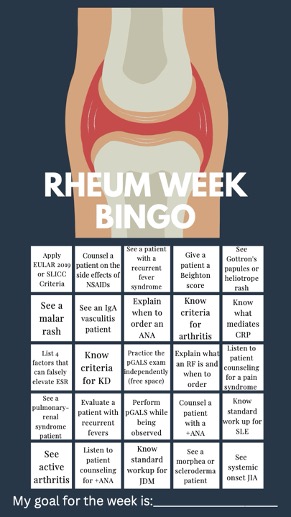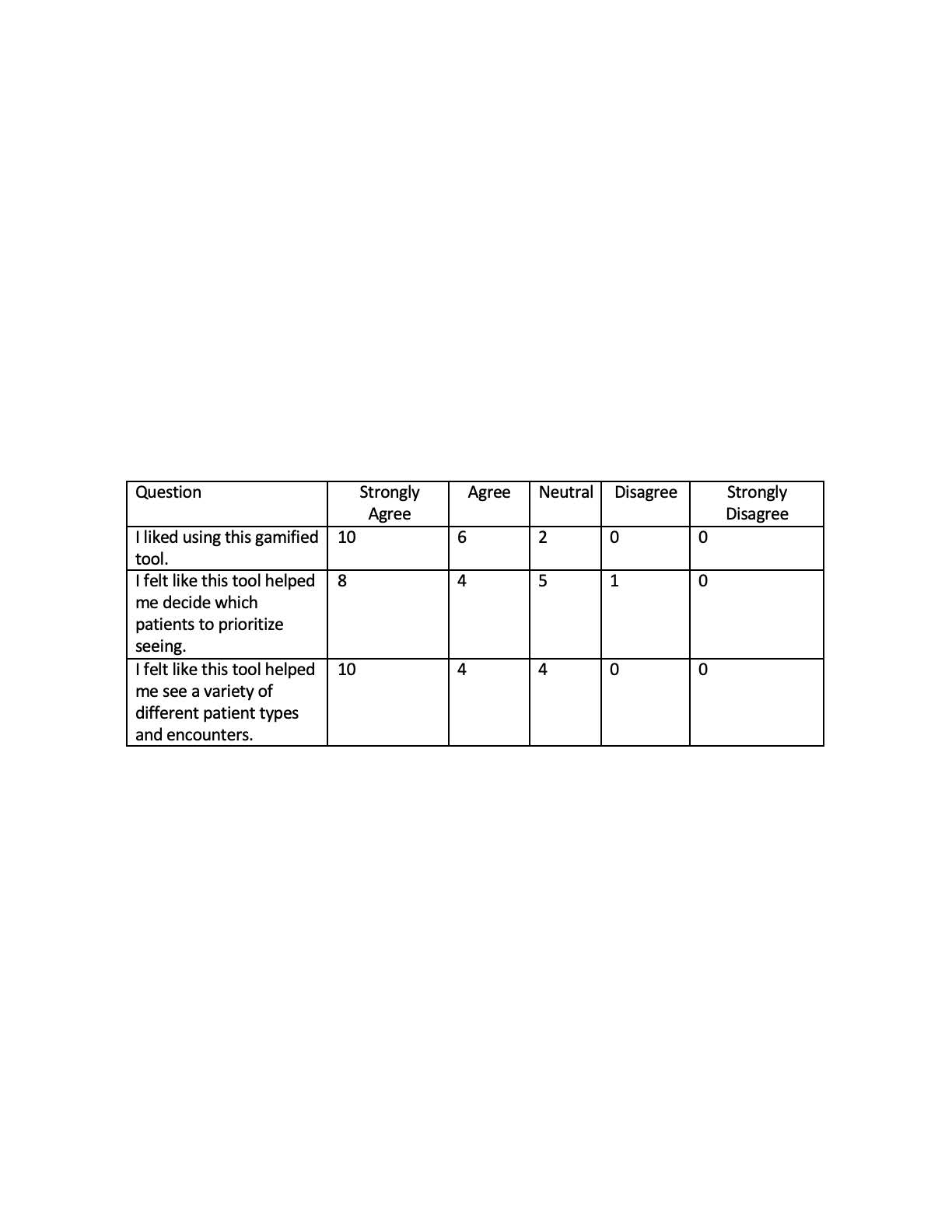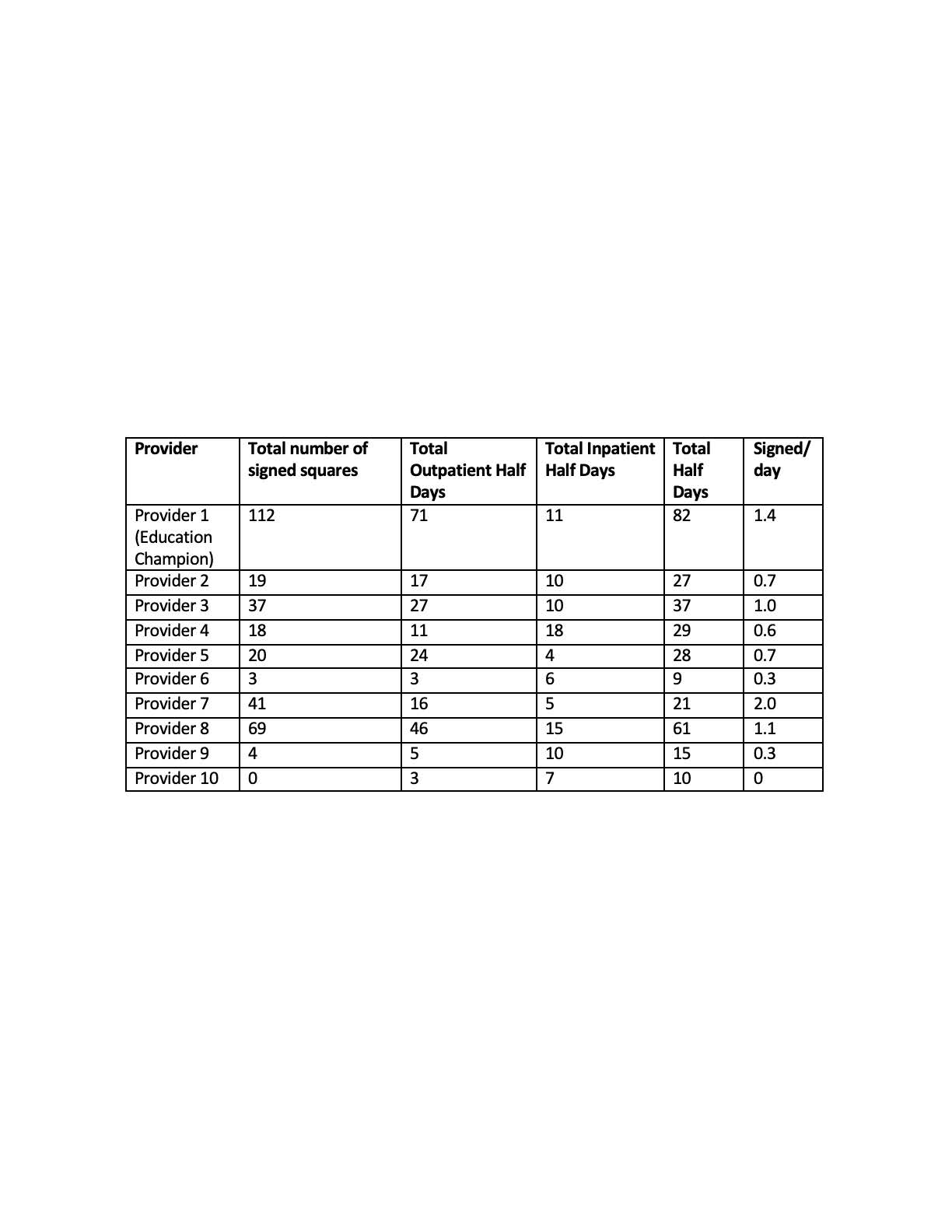Session Information
Session Type: Poster Session B
Session Time: 10:30AM-12:30PM
Background/Purpose: Exposure to pediatric rheumatology is often lacking during training given that 33% of medical schools and 36% of residency programs have no affiliated pediatric rheumatologist (PR), with workforce issues projected to worsen. Although there is a paucity of PRs, there is no paucity of childhood rheumatic and musculoskeletal disease (cRMD). This combination can lead to delays in diagnosis and treatment, which could contribute to increased morbidity and mortality. Gamification is a teaching strategy that reinforces concepts and incentivizes self-directed learning during training, and we have implemented an educational intervention aimed at using gamification to focus trainee attention on salient topics within the rotation. The secondary benefit is that it can also capture faculty teaching effort.
Methods: Categorical and preliminary pediatrics interns rotate through the rheumatology department for four days in a week and are given a bingo card with squares containing high-yield topics (Figure 1). Supervising attendings or fellows mark off spaces on the card as residents progress, with the exception of “Practice pGALS independently,” which functions as a free square. An anonymous survey is available for completion at the end of the week, and based on feedback the card has been revised.
Results: The bingo card has been distributed to 50 interns. Of those, 36 (72%) have sent photos of their cards and 18 (36%) have completed the survey with mostly favorable responses (Figure 2). This gives trainees the opportunity to seek out topics pertinent to general pediatrics. Respondents noted the bingo card helped them “[do their] own self-directed learning about what are essential for rheumatological conditions” and that it was “nice to have a framework for what to focus on”. One noted that “It was also helpful for attendings to know what teaching points had not been covered.” Of the 36 who returned cards, 11 residents (31%) got a bingo. Within the academic year, faculty members spent an average of about 32 half days with residents, and 90% of the faculty members signed at least one bingo square. The average number of signed squares for the year was 32 per attending. Faculty averages ranged from signing 0 squares per half day to about 2 (1.95) per half day spent with a resident, with an average of almost 1 (0.80) (Figure 3). The most commonly marked squares included “Counsel a patient with +ANA,” “See active arthritis,” and “Explain when to order ANA.”
Conclusion: The bingo card helps guide intern learning, and 89% of residents liked having this tool. This process potentially benefits both the trainee and faculty by decreasing the cognitive load during a brief clinical experience. It also allows faculty to quickly know what has already been covered and what other points can be covered. Additionally, this is a tangible way to measure faculty engagement with residents in a large academic center. This baseline data can also be used to help increase teaching points discussed by faculty during clinical experiences. This tool is also translatable, and bingo cards can be created for free with many programs and adapted by any rotation during training.
To cite this abstract in AMA style:
Fergason K, DiLeo M, Braddock A, Gillispie-Taylor M. Bingo: A Winning Pediatric Rheumatology Teaching Strategy? [abstract]. Arthritis Rheumatol. 2024; 76 (suppl 9). https://acrabstracts.org/abstract/bingo-a-winning-pediatric-rheumatology-teaching-strategy/. Accessed .« Back to ACR Convergence 2024
ACR Meeting Abstracts - https://acrabstracts.org/abstract/bingo-a-winning-pediatric-rheumatology-teaching-strategy/



